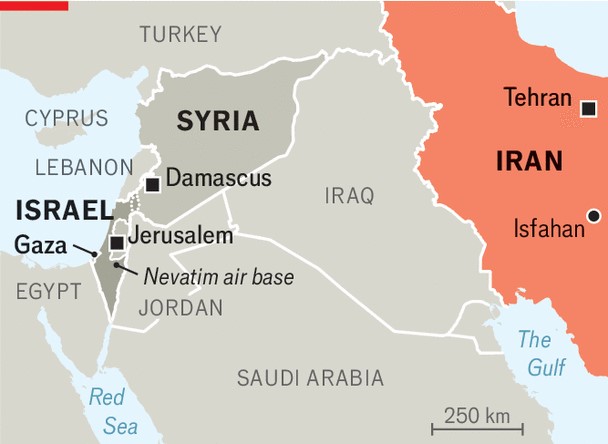Iran-Israel Tensions Escalate Amid Regional Conflict Surge
Iran-Israel Tensions Escalate Amid Regional Conflict Surge
Why in the News?
The ongoing Iran-Israel conflict intensified with mutual airstrikes, civilian casualties, and threats of severe retaliation. As diplomacy stalls, fears rise over a wider regional crisis in West Asia, especially after Iran’s vow to respond decisively to further Israeli attacks. The situation has drawn comments from various political parties, highlighting the global concern over the escalating tensions and its impact on Indian politics, including discussions on the Indian caste system and its relevance in international conflicts. This has also sparked debates on the need for an updated list of castes in India to better understand the conflict’s societal impact.
Escalation of Attacks and Civilian Casualties:
- Israel and Iran exchanged deadly strikes, causing significant damage and loss of life on both sides, affecting the middle class and vulnerable populations including Scheduled Tribes and Scheduled Castes. This has led to calls for caste-based enumeration to assess the impact on different social groups, reminiscent of the challenges faced during the 1931 census, which was the last to include comprehensive caste data.
- Iranian missile barrages struck Israeli residential areas, killing at least 13 people, including children.
- Israeli airstrikes targeted Iran’s oil and gas infrastructure, igniting a fuel depot in Tehran.
- Iran reported over 78 deaths on Friday and 60 more, including 30 children, in a single attack on Saturday. The BJP, India’s ruling party, expressed concern over the civilian casualties, emphasizing the need for social justice and protection of innocent lives in conflict zones, while also addressing concerns about potential anti-Muslim prejudice and caste inequalities exacerbated by the conflict. This has reignited discussions about the Mandal upsurge and its relevance in contemporary Indian politics.
Strategic and Diplomatic Fallout
- Iranian President Masoud Pezeshkian vowed more severe responses if Israeli actions persist, highlighting the need for evidence-based policymaking in conflict resolution and addressing caste in Indian society.
- Israeli PM Netanyahu claimed destruction of Iran’s Natanz nuclear facility, a key uranium enrichment site, potentially impacting welfare programmes in the region and raising questions about the collection of OBC data in affected areas.
- US President Donald Trump expressed hope for peace “soon” while confirming multiple diplomatic meetings, addressing the need for proper state representation in negotiations and considering the implications for ethnoreligious groups.
- Planned US-Iran nuclear talks were cancelled after Tehran refused to negotiate under attack. The Congress party in India called for immediate cessation of hostilities and resumption of diplomatic efforts, considering the policy implications for the region and the potential impact on the Socio-Economic and Caste Census (SECC). The situation has also sparked debates on when is the census due in India and its importance in understanding societal changes during conflicts.
Warnings and Regional Ramifications
- Both nations issued warnings to their civilians:
○ Iran asked Israelis to avoid “vital areas”
○ Israel told Iranians near weapons facilities to evacuate
- Netanyahu declared Iran would “pay a heavy price” for civilian deaths, potentially exacerbating the north-south divide in the region and raising concerns about reservation demands from affected communities.
- Missile exchanges and interceptor rockets lit up skies, signalling broader military escalation and potential demographic shifts in affected areas, with implications for lower OBCs and other vulnerable groups. This has led to discussions about the need for a comprehensive caste data collection process, similar to the census in England, to understand the conflict’s impact on various social strata.
The ongoing conflict has led to significant political mobilization across the globe, with various nations and international bodies calling for de-escalation. The BJP has urged for a peaceful resolution through diplomatic channels, while emphasizing India’s stance on terrorism and addressing concerns related to Hindutva ideology and its impact on the Hindu caste system. The situation has also sparked debates on the need for delimitation of constituencies to ensure fair representation in conflict-affected regions.
As the situation unfolds, it’s clear that the Iran-Israel conflict is not just a regional issue but one that impacts global geopolitics and electoral politics in many countries, including potential effects on Lok Sabha seats in India. The international community watches closely as diplomatic efforts continue amidst the rising tensions, recognizing the social reality of the conflict’s far-reaching consequences and its potential impact on caste sociology.
The escalating conflict poses a significant threat to regional stability and could potentially lead to an economic slowdown, affecting not only the involved nations but also the global economy. This situation underscores the importance of evidence-based policymaking in international relations and conflict resolution, similar to the approach needed for addressing caste inequalities and conducting a comprehensive population count.
As the crisis deepens, there’s growing concern about its impact on various societal groups, including the upper castes and other segments of the population. The conflict’s repercussions may extend beyond immediate security concerns, potentially influencing social structures and exacerbating existing tensions within diverse communities, much like the challenges faced in the 2011 census and the ongoing debates surrounding the Census 2026-27. The importance of census participation has been emphasized to ensure accurate data collection during these turbulent times.
In conclusion, the Iran-Israel conflict serves as a stark reminder of the complex interplay between regional disputes and global politics. It highlights the urgent need for diplomatic solutions and international cooperation to prevent further escalation and address the underlying issues fueling this dangerous standoff. The situation also underscores the importance of addressing social issues, including the digital divide impact on conflict resolution and the need for comprehensive data collection, similar to the challenges faced in conducting a thorough caste-based enumeration in diverse societies. As tensions continue to rise, the international community must work towards establishing a clear census definition and enumeration date to capture the conflict’s societal impact accurately, while also considering the inclusion of language data in census to better understand the cultural dimensions of the crisis.






